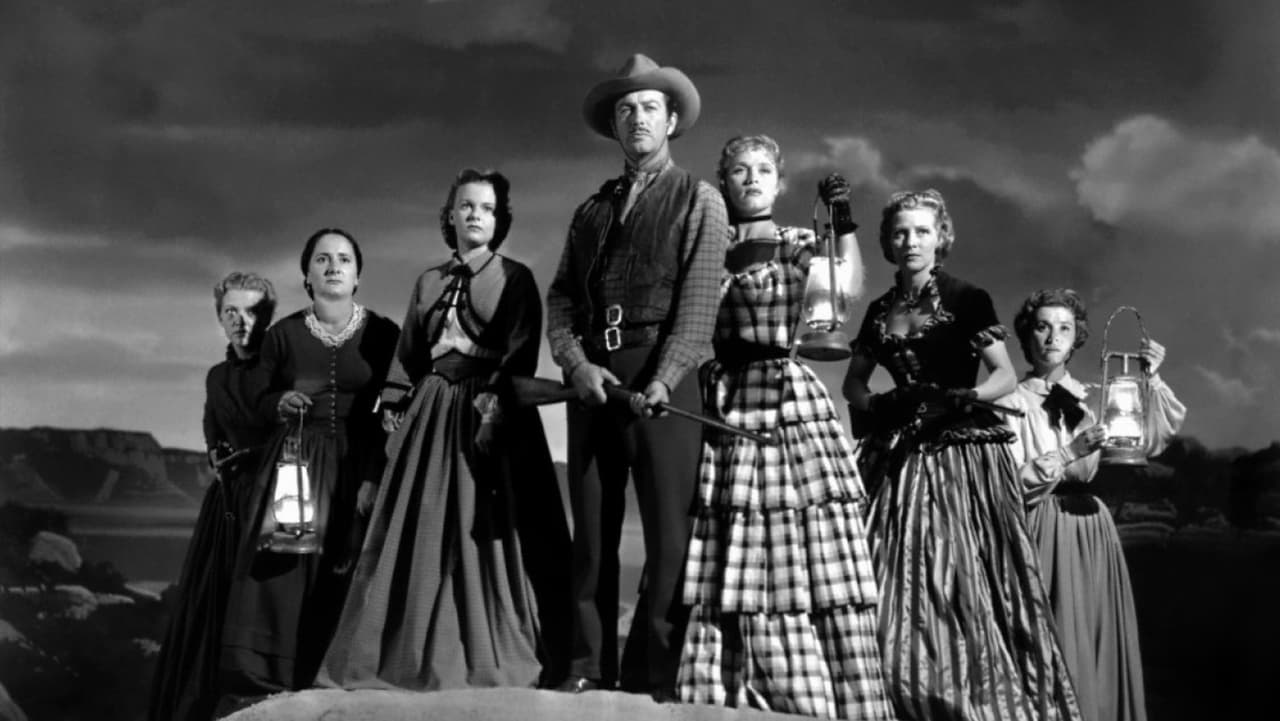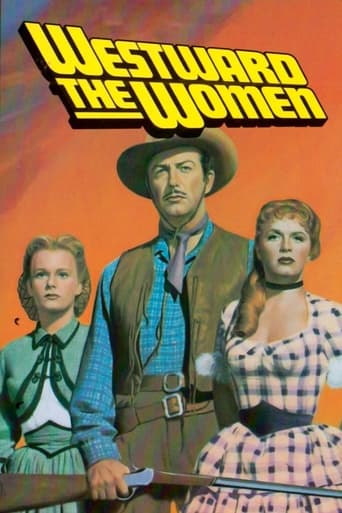

Produced by Dore Schary. Copyright 12 November 1951 by Loew's Inc. A Metro-Goldwyn-Mayer picture. New York opening at the Capitol: 31 December 1951. U.S. release: 31 December 1951. U.K. release: 4 February 1952. Australian release: 2 May 1952. 10,480 feet. 116 minutes. Location scenes filmed at Surprise Valley, Paria Canyon and Johnson Creek in the Mojave desert of Southern Utah.NOTES: M-G-M cut the film to exactly 10,000 feet (111 minutes) in the U.K.COMMENT: Typically, M-G-M has transmuted what could have been a moving piece of historical Americana into a wearisome parade of cornball clichés, redeemed by impressive location photography and a spirited performance by Denise Darcel.The direction by William A. Wellman is visually stylish, but the decision to dispense with background music was a bad error of judgment as its lack points up dialogue and situation clichés more strongly.Still, there is enough incident to maintain the interest, despite Wellman's method of telegraphing each plot development well in advance and despite a comic-relief Japanese cook who talks to the dog of a dead little boy and has a well-stocked repertoire of philosophic clichés for every eventuality - which come across as twice as boring in this film as he says them first in Japanese!Revived at second-release cinemas, two or three times in the 1950's, Westward the Women lent itself to the sort of advertising campaign designed to draw in less discriminating patrons.
... View MoreThis has been my favorite movie from the first time I saw it as a kid. When Videos first came about, I sought this on lists of new releases as often as I came across such lists. When It finally did come out, I had one VHS in color and one in B&W. I can't tell how many times I've seen this gem, but I do believe I have the lines all memorized, and I "know" the ladies. It has become a perfect back- ground movie for me.In fact, when my sister and I first saw this in the early 60's, we loved the "I can't pay the rent" joke so much that we've shared it all of our lives. When my children finally saw the movie (in VHS), they were excited to see Ito tell this joke that they'd heard their whole lives.Even having read everyone else's reviews, I still don't see any failings in the movie. It's great escapism! I can tell you of some "flaws" (crossing tire tracks in the desert scenes, for example), but to me, they're just charming fingerprints left by the director. My only problems are that I want more! I wanted to stay with the women as they developed the town...to see Patience and her husband be leading citizens, to watch Fifi throw pans at Buck, and to watch Rose Meyers dear husband help her raise her son.I'd love to see someone remake this great movie--but only if they are true to the intentions--and allow us to continue to share their western lives. It would be terrible, however, if they spoiled it with 21st Century trashiness. Time to go watch it, again. :)
... View MoreBetween 1930 and 1960, 97% of all movies (that's 14729239520520 films) were westerns--or so it would seem. And, sadly, almost all of them have one of about five different plots and variations on these plots. Because of this, I really have very little patience with the genre--though I must admit that I have reviewed quite a few westerns. The ones I like are often ones that are somehow a bit better--despite the familiar plots, fine acting and direction make them watchable. Rarely, very rarely, do I see one that not only has fine acting, direction AND a novel plot--and all that is in "Westward the Women".The film begins in a remote part of the old west--so remote that there are no women for all the men. Because of this, the men hire a tough trail boss (Robert Taylor) to recruit the women and bring them toa small outpost. The problem, however, is that the only way is a long trek across the prairie--through Indian land and desert. These women sure have to be tough--otherwise they'll never make it. And, in fact, unlike any other western I can think of, many of the women DON'T.What also makes this a very good film are the nice little characters within the film. So it's NOT just a Robert Taylor film but excels because of the fine ensemble cast. One of the standouts is Hope Emerson--a brawny actress who made a name for herself playing gangsters and other scary characters.Overall, there's not a lot to dislike about the film and it's a nice little story about American history you don't normally hear. Worth seeing and a top-notch production--with a real lump-in-your-throat ending. Sweet, sentimental and exciting.
... View MoreIf only this movie would come out on DVD . . . As a woman, this is one of my favorite westerns because it shows women who were courageous, brave, and faced the same danger as all men who went west. The movie has times when you will roll with laughter and even though there may be no tears from cowboys, there are some tearjerker moments. The women in this film are not the 2 dimensional beauties who wait patiently in the wagon for the menfolk to save the day. Regardless of how many times I've seen this movie, I enjoy every single time. Unlike most westerns, any and all gunfights move the plot along and show the women evolving on their journey west. To me, this western is along side Fort Apache for the most well written script.
... View More